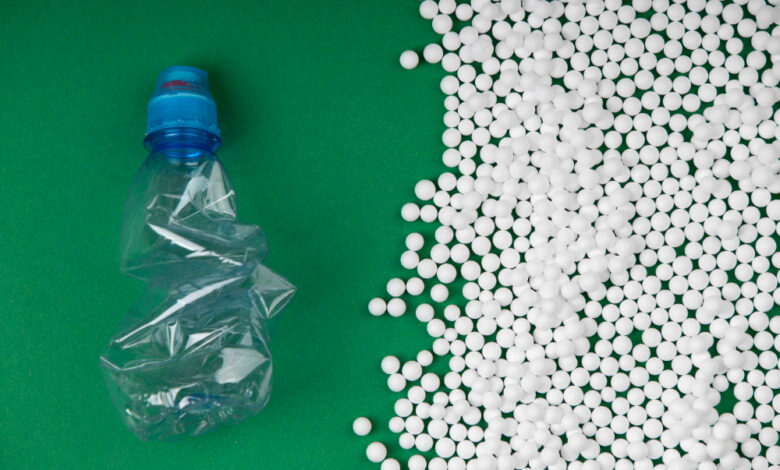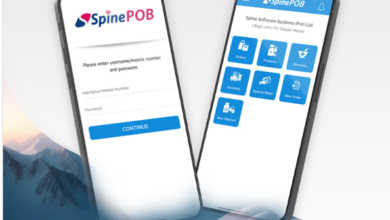
Polytetrafluoroethylene (PTFE) has long been a cornerstone in the realm of high-performance plastics. Recognized for its exceptional resistance to heat, chemicals, and friction, PTFE is widely used across various industries, including aerospace, medical, automotive, and electronics. However, as innovation accelerates, Artificial Intelligence (AI) is now playing a crucial role in revolutionizing PTFE production, enhancing its properties, and discovering new applications. Companies like Vaneflon are leading the charge toward a smarter, more efficient, and innovative future for PTFE applications.
AI-Driven Material Science: Unlocking New Possibilities
The integration of AI in material science is transforming how PTFE is researched, developed, and applied. Machine learning algorithms can analyze massive datasets on polymer behavior, enabling researchers to fine-tune PTFE formulations with unprecedented precision. These AI-driven insights help scientists enhance the mechanical, thermal, and chemical properties of PTFE, paving the way for superior performance in demanding applications.
AI-Powered Simulations and Material Discovery
AI-driven simulations are reshaping material development by predicting how PTFE will perform under extreme conditions. These simulations reduce the need for costly and time-consuming physical testing, allowing manufacturers to streamline product development. Deep learning models also help predict material degradation and long-term performance, ensuring PTFE-based products meet high durability standards.
Moreover, AI-powered generative models can propose new PTFE composite structures that enhance mechanical strength, wear resistance, and thermal stability. By leveraging deep learning, manufacturers can accelerate material discovery, leading to breakthroughs in high-performance plastics. This capability is particularly valuable for aerospace and medical applications where materials must meet stringent safety and performance standards.
Optimizing PTFE Manufacturing with AI
AI is also making PTFE production more efficient and sustainable. Smart factories equipped with AI-powered sensors continuously monitor and adjust process parameters, minimizing waste and improving product consistency. This real-time monitoring ensures that PTFE manufacturing adheres to high-quality standards while reducing operational costs.
AI-Driven Process Optimization
AI algorithms are optimizing various PTFE processing methods, including extrusion and molding. By analyzing process data, AI systems can adjust temperature, pressure, and material flow to ensure optimal conditions for producing high-quality PTFE components. This leads to:
- Improved production efficiency
- Reduced material wastage
- Enhanced consistency in PTFE products
Additionally, AI-driven automation enables the development of innovative manufacturing techniques, such as 3D printing of PTFE-based composites. This advancement is opening new possibilities for customized PTFE components with complex geometries and improved performance characteristics.
Predictive Maintenance for Manufacturing Equipment
AI-powered predictive maintenance is revolutionizing PTFE production by analyzing equipment performance in real-time. Predictive algorithms detect potential failures before they occur, reducing unplanned downtime and extending machinery lifespan. This proactive approach enhances operational efficiency and lowers maintenance costs, ensuring that PTFE manufacturers can maintain high output levels without interruptions.
AI in Quality Control and Performance Prediction
AI-driven quality control systems are transforming how PTFE components are inspected. Traditional quality control methods rely on manual inspections, which can be time-consuming and prone to human error. AI-based machine vision technology, powered by deep learning, offers a superior alternative by detecting microscopic defects that would be invisible to the human eye.
AI-Powered Defect Detection
Machine vision systems use high-resolution imaging and deep learning algorithms to inspect PTFE products in real-time. These systems can identify defects such as:
- Surface irregularities
- Micro-cracks
- Contamination and impurities
- Structural inconsistencies
By detecting defects early in the production process, manufacturers can minimize material wastage and ensure that only high-quality PTFE components reach the market. This is especially critical in industries like healthcare and aerospace, where product reliability is paramount.
AI-Driven Performance Prediction
AI models can predict how PTFE will degrade over time under different environmental conditions. This predictive capability allows engineers to design more durable products and develop maintenance strategies that extend the lifespan of PTFE-based components. By analyzing historical performance data, AI can recommend improvements in material formulation and manufacturing techniques to enhance product longevity.
Sustainable PTFE Production with AI
Sustainability is a growing concern in material science, and AI is playing a key role in making PTFE production more eco-friendly. AI-driven optimization reduces energy consumption, minimizes waste, and enhances recycling efforts, making PTFE manufacturing more sustainable.
Reducing Environmental Impact
By analyzing energy usage patterns, AI can optimize manufacturing processes to lower carbon emissions. AI-driven process adjustments help manufacturers:
- Reduce excessive energy consumption
- Optimize raw material usage
- Implement eco-friendly waste management strategies
Furthermore, AI algorithms can develop recycling techniques that recover and repurpose PTFE waste, contributing to a more circular economy for high-performance plastics.
Future Outlook: AI and PTFE in Next-Gen Applications
As AI continues to evolve, its synergy with PTFE is expected to unlock even more groundbreaking applications. From self-healing PTFE coatings to AI-designed fluoropolymer composites, the future of high-performance plastics is being shaped by intelligent algorithms.
AI-Designed Advanced PTFE Composites
AI is driving innovation in composite materials by identifying novel combinations of PTFE with other advanced materials. These AI-designed composites could enhance properties such as:
- Electrical conductivity for advanced electronic applications
- Biocompatibility for next-generation medical devices
- High-temperature resistance for aerospace and industrial applications
Self-Healing PTFE Coatings
One of the most exciting AI-driven advancements is the development of self-healing PTFE coatings. By incorporating nano-engineered materials, AI can help create PTFE surfaces that repair themselves when damaged, significantly extending their lifespan and reducing maintenance costs. This innovation has enormous potential for applications in automotive, aerospace, and industrial machinery.
AI-Optimized PTFE for Space Exploration
PTFE has long been used in space applications due to its extreme resistance to temperature variations and chemical exposure. With AI optimizing its properties, next-generation PTFE materials could offer even greater resilience for use in:
- Spacecraft insulation
- Satellite components
- Extraterrestrial habitat construction
Conclusion: AI and PTFE – A Revolution in High-Performance Plastics
The fusion of AI and high-performance plastics like PTFE represents the next frontier of material science. By leveraging AI-driven insights, companies like Vaneflon are pushing the boundaries of what PTFE can achieve, making it stronger, more efficient, and more sustainable.
As AI continues to advance, the future of PTFE will see innovations that were once thought impossible. From self-healing materials to AI-designed composites, the role of PTFE in industries that demand extreme performance and reliability will only grow. The integration of AI in PTFE production, quality control, and sustainability efforts ensures that this high-performance plastic remains at the forefront of technological progress.
By embracing AI-driven advancements, manufacturers can unlock new opportunities in material science, leading to a smarter, more innovative, and more sustainable future for PTFE applications.
For more information about cutting-edge PTFE solutions, visit Vaneflon – https://www.vaneflon.com/




